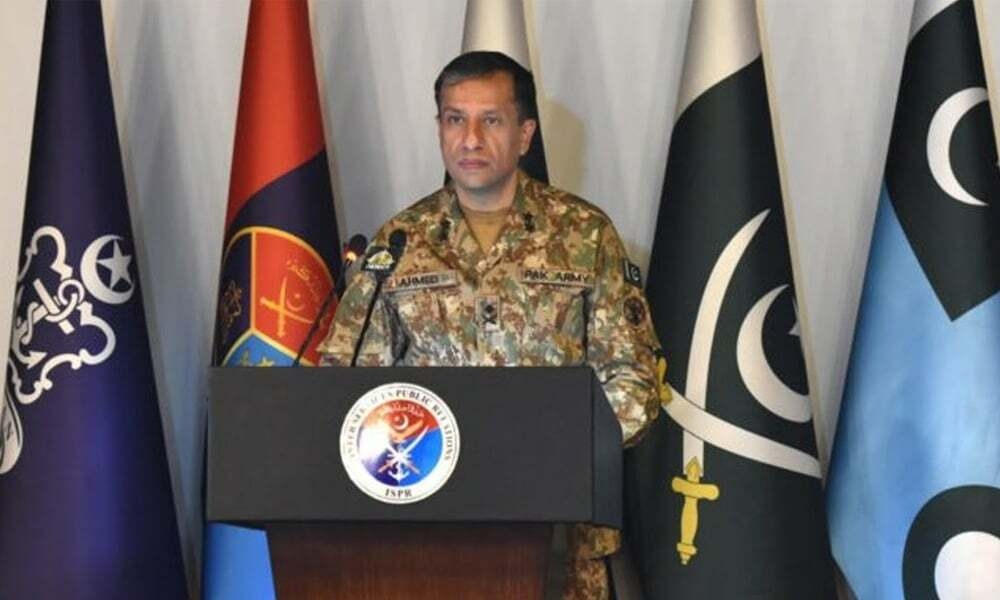Pakistan Army Spokesperson’s Terror-Linked Family Background Surfaces Amid Cross-Border Tensions

As tensions escalate between India and Pakistan following a series of Indian precision strikes on terror infrastructure in Pakistan and Pakistan-occupied Kashmir, the spotlight has turned to Pakistan Army’s chief spokesperson, Lt Gen Ahmed Sharif Chaudhry. The three-star general has been issuing press statements defending Pakistan’s position and denying Indian claims under Operation Sindoor. However, Indian officials have now revealed that Lt Gen Chaudhry’s family background is deeply entangled with terrorism and nuclear proliferation.
According to documents cited by Indian officials and corroborated by UN and US sanctions lists, Lt Gen Chaudhry is the son of Sultan Bashiruddin Mahmood, a nuclear scientist accused of assisting al-Qaeda and maintaining links with Osama bin Laden.
Who is Lt Gen Ahmed Sharif Chaudhry?
Lt Gen Ahmed Sharif Chaudhry is the current Director General of the Inter-Services Public Relations (ISPR), the media wing of the Pakistan Armed Forces. He was appointed to the post in December 2022 by Army Chief Gen Asim Munir. Notably, he is the first officer from the Corps of Electrical and Mechanical Engineering to hold this position.
Before assuming the ISPR role, Chaudhry served as the Director General of the Defence Science and Technology Organisation (DESTO), a secretive military R&D agency in Pakistan. He has also worked in military operations.
What is the controversy surrounding his father?
Chaudhry’s father, Sultan Bashiruddin Mahmood, is a former nuclear scientist who worked with the Pakistan Atomic Energy Commission. He is internationally known for his alleged links with al-Qaeda.
According to United Nations and US government documents:
Mahmood met Osama bin Laden and allegedly discussed nuclear weapons infrastructure.
He was a key figure in Ummah Tameer-e-Nau (UTN), an NGO established in 1999 to provide humanitarian aid in Taliban-controlled Afghanistan.
UTN was designated as a terror-linked entity by the US Treasury and UN Security Council in 2001.
He was arrested in Pakistan in 2001 but released after authorities claimed he lacked the expertise to transfer nuclear technology.
Despite his release, Mahmood remains on the US Treasury’s Specially Designated Nationals (SDN) and Blocked Persons list.
UTN claimed to focus on humanitarian projects in Afghanistan but was later discovered to be engaged in:
Sharing sensitive nuclear information with al-Qaeda operatives.
- Coordinating with Taliban-linked entities.
- Raising funds under religious pretexts to support extremist causes.
- The US and UN sanctioned the group in late 2001, following the 9/11 attacks, and froze its assets globally.
What were Mahmood’s beliefs and affiliations?
Mahmood was known for advocating a fusion of Islamic theology and nuclear science. His writings, including the book “Mechanics of the Doomsday and Life after Death,” discuss the apocalypse from a Quranic lens. While dismissed by mainstream scientists, his work gained traction in fundamentalist circles.
He also maintained links with figures like Lt Gen Hamid Gul, the former ISI chief known for supporting Islamist groups and the Taliban.







